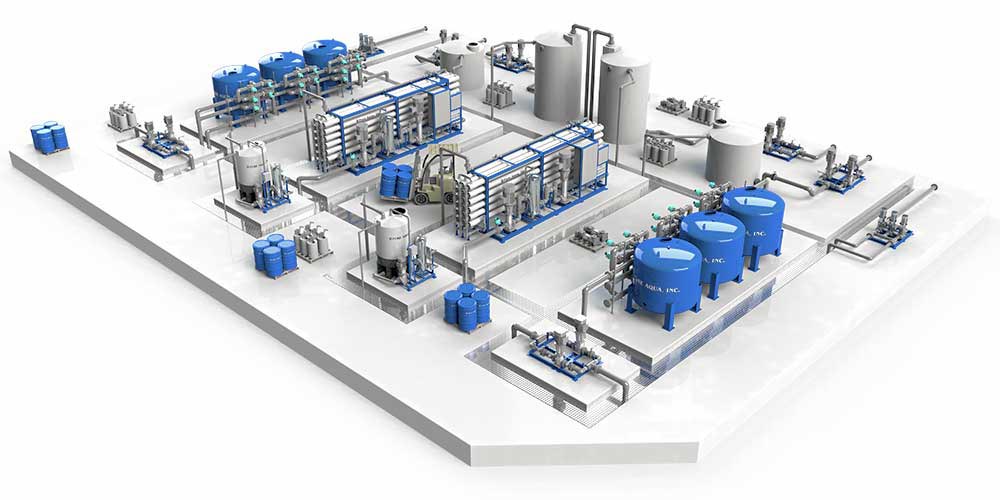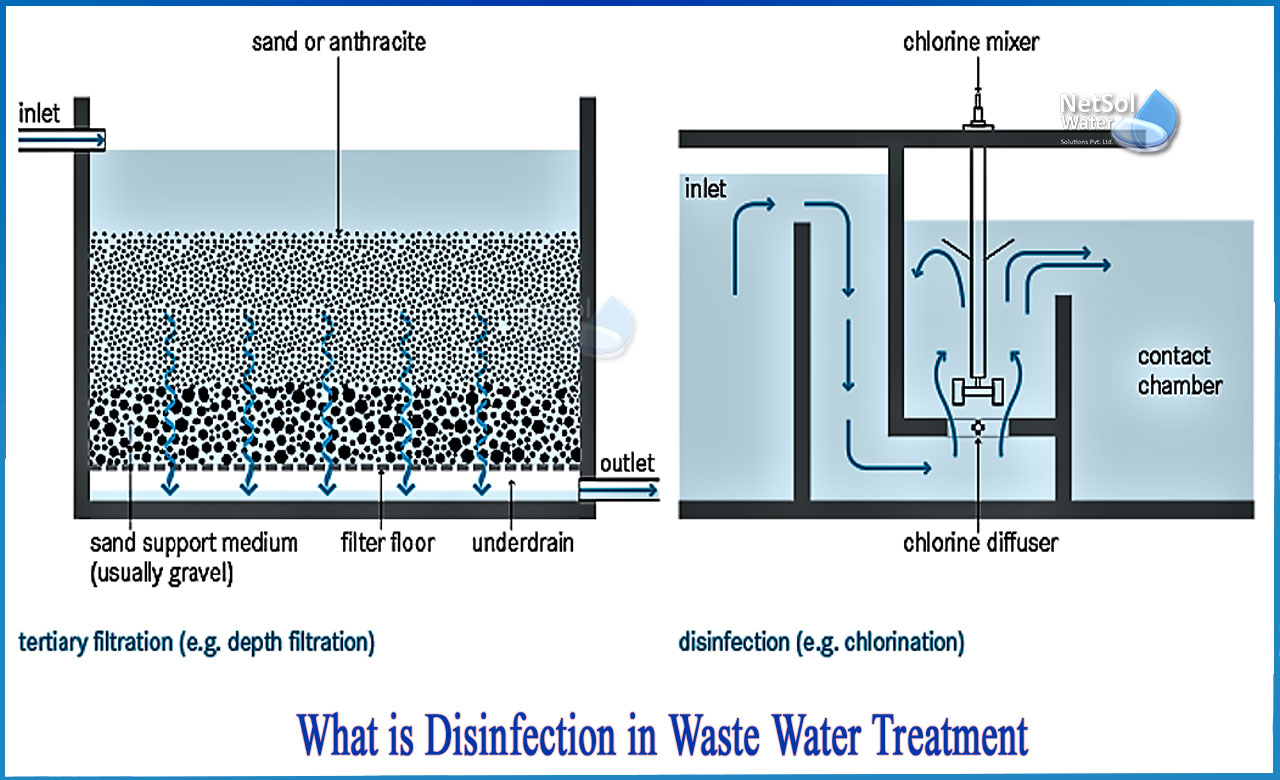Checking Out Water Technology Startups: Just How They Change Lasting Solutions
Water Technology start-ups are emerging as essential players in the quest for lasting solutions to worldwide water problems. These companies take advantage of cutting-edge technologies to enhance water efficiency and management. Their contributions deal with pushing challenges such as shortage and contamination. Nonetheless, in spite of their potential, they deal with various challenges that could impact their success. Comprehending these characteristics loses light on the future of water sustainability and the role these start-ups might play in shaping it.
The Relevance of Water Technology in Today's Globe
As worldwide water deficiency heightens, the importance of water Technology becomes significantly apparent. Water Technology plays a vital function in dealing with the obstacles posed by lessening fresh water resources and enhancing demand. It includes a broad array of advancements, consisting of advanced filtering systems, wastewater treatment modern technologies, and smart irrigation solutions. These advancements not only enhance the efficiency of water use however also advertise lasting methods across numerous industries, consisting of agriculture, market, and urban development.
In addition, the significance of water Technology prolongs past source management. It promotes strength against environment change influences, such as floods and dry spells, by supplying adaptive solutions for water conservation and administration. Additionally, it supports public health and wellness by ensuring access to tidy and safe drinking water. As the globe faces expanding water-related difficulties, the integration of advanced water modern technologies is crucial for cultivating lasting advancement and securing water availability for future generations.
Cutting-edge Solutions From Water Tech Startups
While typical methods to water administration have actually served their function, a new age of water tech start-ups is transforming the industry with cutting-edge services (Water Technology Startups). These companies utilize advanced technologies to deal with pushing water issues, such as scarcity, contamination, and inefficient circulation. Several start-ups utilize man-made intelligence and device knowing to enhance water usage and predict demand, leading to even more sustainable techniques
Additionally, numerous companies concentrate on developing innovative filtering systems that get rid of pollutants and make water safe for intake. Others discover decentralized water therapy modern technologies, enabling communities to manage their water sources extra effectively. Some startups are introducing clever watering remedies that minimize water waste in agriculture, advertising ecological preservation.
Instance Researches: Successful Water Technology Startups
Many water Technology startups have actually arised as leaders in dealing with international water difficulties via innovative approaches. One remarkable instance is Xylem, which concentrates on water analytics and clever facilities to optimize water usage and minimize waste. Their remedies have been applied in different municipalities, showing significant renovations in water administration effectiveness.
An additional effective start-up, No Mass Water, has actually developed solar-powered hydropanels that draw out water vapor from the air, offering lasting drinking water in arid regions. Water Technology Startups. This Technology has actually been released in several countries, ensuring neighborhoods have access to clean water
AquaVenture Holdings operates a diverse portfolio of water-as-a-service options, attending to water shortage via desalination and wastewater treatment. Their tasks have confirmed necessary in areas dealing with serious water scarcities, showcasing the possibility of innovative water technologies to produce lasting, favorable effects. These study highlight the transformative potential of start-ups in the water Technology field.
The Function of Smart Technology in Water Administration
Smart Technology plays a vital duty in modern-day water administration by leveraging IoT applications to optimize source usage. Information analytics improves effectiveness by offering workable understandings, while remote monitoring remedies make it possible for real-time oversight of water systems. With each other, these technologies change how water is handled, promoting sustainability and functional efficiency.
IoT Applications in Water
As water shortage and monitoring challenges heighten globally, the combination of Internet of Things (IoT) applications has actually become a critical solution in optimizing water sources. IoT Technology facilitates real-time tracking and evaluation of water systems, allowing a lot more effective use and monitoring. Sensors released in various water infrastructures can track top quality, flow rates, and leakage, giving important data to stakeholders. This information equips customers and utilities to make informed decisions, minimizing waste and improving conservation initiatives. In addition, smart irrigation systems utilize IoT to maximize water distribution for agriculture, making certain that crops receive the right quantity of water at the correct time. Generally, IoT applications are transforming standard water monitoring practices, cultivating sustainability and strength in water resource systems.
Information Analytics for Performance
Harnessing data analytics is vital for boosting performance in water administration. Water Technology startups are progressively utilizing advanced analytics to optimize resource allotment and decrease waste. By evaluating data from different resources, these start-ups can identify patterns and fads that educate far better decision-making. Predictive analytics can forecast water need, enabling utilities to adjust supply accordingly, thereby reducing surpluses and scarcities. Additionally, real-time data handling makes it possible for the instant discovery of leaks and inadequacies within distribution systems, substantially lowering operational expenses. Additionally, data-driven understandings empower stakeholders to carry out targeted preservation approaches, fostering sustainable methods. Basically, incorporating data analytics right into water administration not just streamlines operations but additionally advertises lasting sustainability in water source usage.
Remote Tracking Solutions
While conventional water administration systems frequently fight with inadequacies, remote surveillance services are transforming just how water sources are taken care of. These cutting-edge modern technologies enable real-time information collection and analysis, enabling stakeholders to check water top quality, flow prices, and use patterns from afar. Utilizing sensors and IoT devices, remote tracking gives instant understandings that assist in aggressive decision-making. This shift not just boosts functional efficiency but also promotes sustainability by decreasing water waste and optimizing source allocation. In addition, remote monitoring systems can recognize prospective problems prior to they rise, therefore reducing the risk of contamination or infrastructure failing. As water Technology start-ups remain to establish these options, the industry is poised for considerable advancements in sustainable water management techniques.
Challenges Facing Water Technology Startups
Water Technology start-ups experience considerable challenges that can hinder their development and success. Key problems include protecting ample financing, navigating through complex regulatory atmospheres, and competing in a crowded market. These challenges require strategic planning and development to get over.
Funding and Investment Challenges
Development in water Technology holds immense possibility for attending to worldwide obstacles, startups in this field frequently face substantial financing and investment obstacles. Numerous investors continue to be careful, viewing the water industry as risky as a result of its complex regulatory landscape and long advancement timelines. Furthermore, start-ups often have a hard time to show instant success, which can discourage potential backers. Traditional endeavor funding might ignore water innovation, favoring fields with quicker returns, such as tech or durable goods. Protecting gives and government financing can be competitive and lengthy, more complicating financial stability. Consequently, several cutting-edge water Technology startups discover themselves in a precarious setting, needing innovative funding approaches to browse these monetary obstacles and achieve their objectives
Governing Conformity Issues
Steering regulative compliance is a substantial obstacle for start-ups in the water Technology market, as they must come to grips with a myriad of local, national, and global guidelines. These policies usually incorporate water high quality requirements, environmental defense regulations, and safety and security protocols, which can vary widely throughout territories. Start-ups may find it difficult to navigate this complex landscape, specifically when scaling procedures or getting in new markets. The expenses connected with compliance can be substantial, drawing away resources far from advancement and product development. Furthermore, delays in getting essential permits or accreditations can hinder growth and market entry. Consequently, a durable understanding of regulative structures is vital for these startups to ensure sustainable operations and stay clear of prospective lawful effects.
Market Competition Dynamics
As water Technology startups arise in a competitive landscape, they face various obstacles that can impede their growth and technology. Developed firms frequently control the marketplace, leveraging resources and experience to maintain their positions. Start-ups fight with restricted funding, which limits study and advancement abilities, making it hard to contend on Technology and pricing. Additionally, the quickly progressing nature of water modern technologies needs consistent adaptation, further straining startup resources. Regulatory difficulties can make complex market access, as compliance with ecological criteria is critical yet expensive. Attracting knowledgeable talent in a more info niche field provides another barrier, as bigger firms may provide more appealing work packages. Consequently, these factors produce a complicated atmosphere for water Technology startups intending to succeed.

The Future of Water Technology and Sustainability

The future of water Technology will likely concentrate on integrating expert system and information analytics to maximize water circulation and usage patterns. By harnessing real-time data, business can anticipate scarcities and take care of resources better. Sustainable practices will certainly become a cornerstone of the industry, encouraging circular economies where water is recycled and treated. Ultimately, the ongoing advancement of water Technology will certainly be essential in developing resilient infrastructures capable of fulfilling the challenges posed by climate change and population development while promoting ecological stewardship.
Often Asked Questions
What Are the Key Metrics for Assessing Water Technology Startups?
Key metrics for reviewing water Technology start-ups include market potential, scalability, consumer acquisition costs, earnings development, technology development, governing compliance, ecological impact, competitive advantage, and team know-how, all critical for figuring out long-term viability and success.
Exactly How Can Individuals Support Water Technology Innovations?
Individuals can sustain water Technology innovations by purchasing startups, promoting for plan changes, taking part in community initiatives, sharing understanding concerning sustainable techniques, and advertising understanding of water issues with regional events and social media.
What Are Usual Funding Sources for Water Technology Startups?
Usual financing resources for water tech start-ups include financial backing, government grants, crowdfunding platforms, angel capitalists, and corporate partnerships. These financial avenues help facilitate advancement and advancement in sustainable water monitoring technologies.

Which Industries Advantage Many From Water Technology Advancements?
Industries such as agriculture, power, manufacturing, and local solutions benefit considerably from water Technology advancements. These developments improve water effectiveness, reduce costs, and advertise sustainable methods, ultimately contributing to ecological conservation and resource management.
Are There Any Regulative Challenges Particular to Water Innovation?
Yes, water Technology encounters governing obstacles, including compliance with environmental standards, allowing processes, and differing local policies. These intricacies can impede innovation and slow the application of brand-new technologies in the water administration industry.
Water Technology start-ups are arising as important gamers in the mission for lasting remedies to international water concerns. As international water shortage heightens, the relevance of water Technology ends up being increasingly noticeable. Others discover decentralized water treatment modern technologies, allowing neighborhoods to manage their water sources extra successfully. Another successful start-up, No Mass Water, has actually established solar-powered hydropanels that draw out water vapor from the air, providing sustainable alcohol consumption water in dry regions. Their tasks have confirmed crucial in regions encountering extreme water lacks, showcasing the potential of cutting-edge water innovations to create lasting, positive effects.